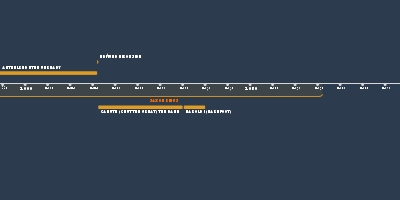1 mayo 1381 año - Peasants Revolt
Descripción:
- Labour shortage: After the Black Death had decimated over one third of the population, there was a shortage of people left to work the land. The remaining peasants demanded higher wages and better working conditions.- The Statute of Labourers: a law to fix maximum wages was passed by the government (Parliament, composed mainly of land-owning Bishops and Lords).
- A poll tax: to support a long war with the French was introduced for the third time in four years: everyone over the age of 15 had to pay one shilling.
Rebels from Essex and Kent (soldiers and tradesmen, some disillusioned churchmen, well-to-do artisans and villeins as well as the destitute) marched toward London. The Kentish men, under Wat Tyler, entered London, where they looted and murdered tax officials who opposed to them burning tax records.
The government was compelled to negotiate. King Richard met the men of Essex outside London and promised cheap land, free trade, and the abolition of serfdom (end of feudalism) and forced labour. During the king’s absence, the Kentish rebels in the city forced the surrender of the Tower of London; the chancellor, Archbishop Simon of Sudbury, and the treasurer, Sir Robert Hales, both of whom were held responsible for the poll tax, were beheaded.
Outcome
The rebellion lasted less than a month and failed completely as a social revolution. King Richard did not, or could not due to his limited power in Parliament, keep any of his promises, and manorial discontent continued to find expression in local riots. The rebellion succeeded, however, as a protest against the taxation of poorer classes insofar as it prevented further levying of the poll tax. Besides, over the next 100 years many peasants found that when they asked for more money the lords had to give in.
Añadido al timeline:
fecha:
1 mayo 1381 año
Ahora mismo
~ 644 years ago
